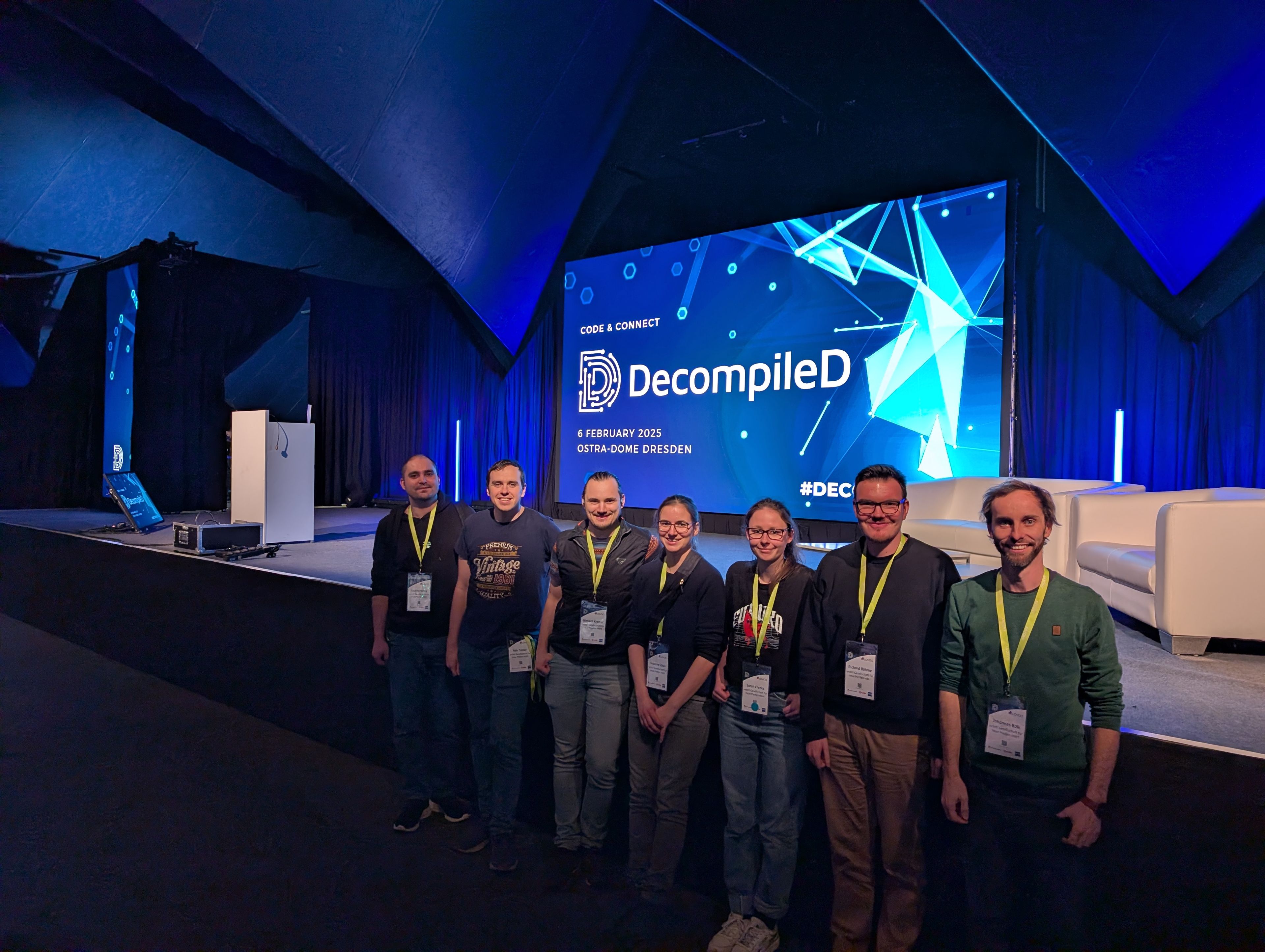DecompileD 2025

Recap
DecompileD 2025
DecompileD is a conference for everyone navigating the world of software development and looking to gather in one place to learn and exchange information about innovations, trends, best practices, and new technologies. It takes place annually - as the two big letters in the name reveal - in our hometown of Dresden. That's one more reason not to miss out on the conference with its many exciting presentations. The main focuses this year were clearly on Artificial Intelligence and effective teamwork. Find out what we took away from DecompileD in this recap.
The keynote: Why are we actually doing this?
At the opening of the conference, Sven Peters, Developer Advocate at Atlassian, spoke about the challenges of modern software development, especially when it comes to maintaining a healthy balance between development speed and code quality while increasing productivity is expected. It is important to cultivate a good developer experience, as this aspect can also be measured and improved. While productivity is important, one should not lose sight of what actually brings joy to developers in their profession.
Code: "Obvious" is not always "correct"
Besides the very prominent topic of AI, this year we were especially looking forward to the presentations featuring best practices from various fields. In terms of coding, we enjoyed the presentation by Andreas Roth, who demonstrated using an example of a frontend technology how "Don't repeat yourself" (DRY) as a development mantra can also lead to excessively rigid and complex code. Therefore, it is important to work with abstraction layers as well. Since these can also have disadvantages, one must always weigh the options. Andreas presented a simple, triangular graphic of reusability, interface complexity, and scope, into which one can categorize their components. We definitely want to try out this method.
Understanding customer needs truly
As a service provider, we must always be able to understand our customers and their needs. In his presentation, Martin Betz emphasized that it is not only about fulfilling customer wishes. One should question whether each feature really contributes to the core functionality of an application and whether there are other ways to achieve it. It is mainly about empathizing with customers and advising them to the best of our ability, especially when they struggle to clearly articulate their wishes. Although all of this is nothing new, we found it important to see these things compactly in front of us. Even though Martin's presentation was more geared towards large companies developing their own products for end customers, we can still take away some key points from his approach.
Artificial Intelligence now and in the future
It should not have escaped anyone in our industry that AI currently often dominates discussions on the topic of development. Therefore, it is clear that it also plays a major role at a conference like DecompileD. We listened to two presentations on this topic.
Yishai Beeri discussed the impact of AI on DevOps workflows and how they will evolve to keep up with rapid advancements. Yishai stated that the trend will continue, with code being significantly more generated by automated agents in the future, and there will be a need for processes to ensure that humans still review it in a meaningful way. It is also important to determine where only the result of an automated test is relevant in the end, and at which point the second or even third look of a human is necessary.
Stefan Queißer spoke about the difference between myth and reality regarding the question of whether AI will one day replace developers. The answer has already been expressed in many places: No, but the human element could potentially evolve to a higher level than just writing code in the future. Particularly interesting was Stefan's view that Artificial Intelligence only provides added value when it performs its tasks invisibly in the background, with humans receiving a designated interface for it. This implies that one may not necessarily need to know that an LLM or something similar is running. In short: As long as one needs to review and correct the results of AI, it cannot replace human work.
Our DecompileD 2025

Overall, the DecompileD is a very well-organized conference that attracted several hundred people to the OSTRA Dome in Dresden. Among the many interesting presentations, there were plenty of opportunities for exchange and networking in a pleasant atmosphere. A particular highlight was the fact that most presentations were running simultaneously in one room. For this purpose, the audience was provided with headphones and could switch between the channels of the respective speakers. A great feature to ensure that nothing is missed if one decides to switch to a different topic spontaneously. With so much comfort at such a pleasant conference, we are happy to participate again next year!
Share this post